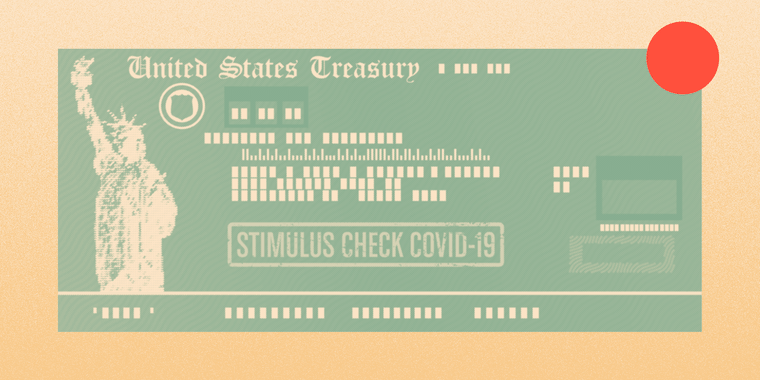A new round of stimulus payments to Americans also means another round of scammers trying to get their hands on them.
The first round of stimulus checks in April resulted in nearly $211.3 million being lost by Americans to fraud, according to the Federal Trade Commission, so experts are urging people to be vigilant after President Donald Trump signed the $900 billion COVID-19 relief bill on Sunday night.
Watch TODAY All Day! Get the best news, information and inspiration from TODAY, all day long.

The second round of stimulus payments are up to $600 per individual for those who earned less than $75,000 in 2019 or for married couples who filed taxes jointly and earned less than $150,000. For every $100 a person earns over those caps, the payment will be reduced by $5, and an individual making over $87,000 will not receive a stimulus payment.
With payments having already started going out to some Americans, here are scams that experts say to watch out for to protect your money.
Unsolicited phone calls or emails
During the first round of stimulus checks, the FTC received more than 20,000 total fraud complaints with scammers contacting people through email, a website or apps.
Spoofing technology allows scammers to control caller ID displays and change them to read "IRS" as the number or make emails look like they are from an official government agency, as Florida Attorney General Ashley Moody noted in a release on Monday.
Experts recommend letting any phone calls from unfamiliar numbers go to voicemail. If you get a message from someone saying he or she is with the Internal Revenue Service or another government agency, call them back at the number listed on their official website instead of directly replying to a text, email or phone call.
The FTC also notes that the government will not call, text, email or contact you on social media to ask for personal information like your Social Security number, credit card information or bank account, so anyone asking is a scammer. Only use the IRS web page to submit information to the IRS.
If you get a text message asking to "verify" your information or to click a link to "request benefit payments," delete it because the link is phony and usually takes you to an application used to steal your personal information, according to the Better Business Bureau.
Offers to get your payment to you faster
Anyone who claims they can get your stimulus money to you faster is a scammer because there is no such process, according to the FTC.
Also, anyone who says they can expedite payment for an upfront fee through means like a prepaid debit card is engaging in a scam, according to the BBB.
There is no action required by eligible individuals to receive the second payment. Some may receive it via direct deposit, check or debit card, and payment is automatic, so you don't have to contact your bank with questions about when it will arrive, according to a news release by the IRS.
Be on the lookout for anyone claiming they can get your payment to you immediately via wife transfer, credit, prepaid debit or a gift card. The FTC reports that $20.9 million in fraud occurred during the first round of stimulus checks related to scammers claiming they would send the payment via credit card, followed by debit card and cash app scams.
Threats of immediate penalties if action is not taken
If you do answer the phone and a person claims you will lose your payment or suffer a financial loss if you don't take immediate action, it's a scam, according to the Florida attorney general.
Anyone asking to have information, like your Social Security or credit card numbers, right away means you should just hang up or delete the email or text.
The key is to stay calm and not take any immediate action because scammers are trying to get you to act before you think, according to the BBB.
Counterfeit checks
This was a scam that popped up during the first round of stimulus payments in April.
If a check arrives in the mail with an odd amount, particularly if there are extraneous cents, it could be counterfeit.
If you are asked to call a number or verify information over the phone in order to cash the check, once again that is an obvious scam because the IRS will never ask you to give your personal information over the phone. You are not required to fill out an application or contact the IRS in order to receive your payment.
The IRS also says that retirees who don't file a tax return do not have to take any action in order to receive their stimulus check.
For those who may have received a counterfeit check, the Consumer Financial Protection Bureau says you can notify the IRS via email at phishing@irs.gov. If you think your personal information has been compromised by a scammer, you can report it to the IRS at IdentityTheft.gov.
The IRS also has a Get My Payment portal that it says will be updated with more information to track your payment now that the second round of stimulus money has been approved.